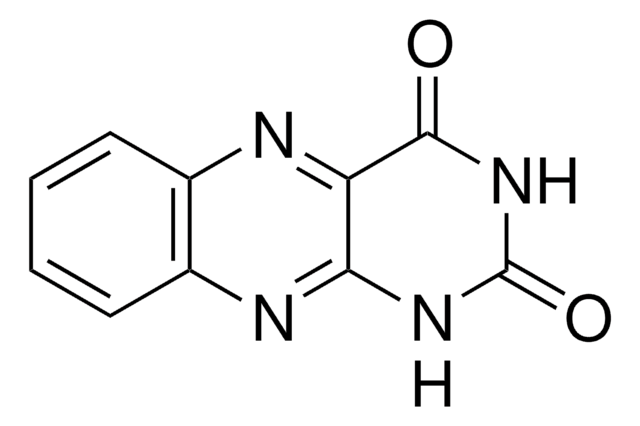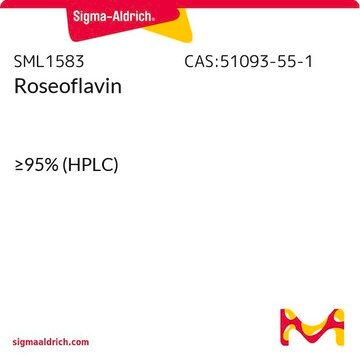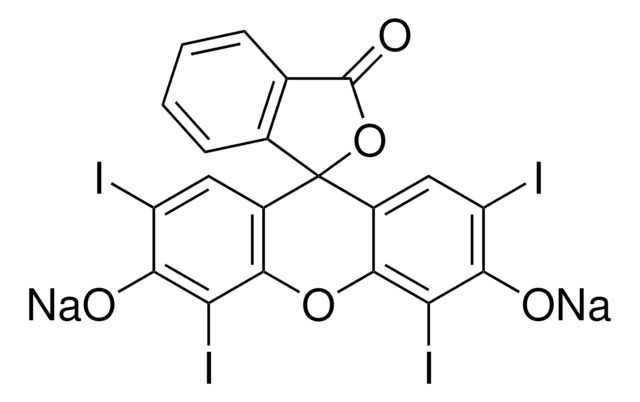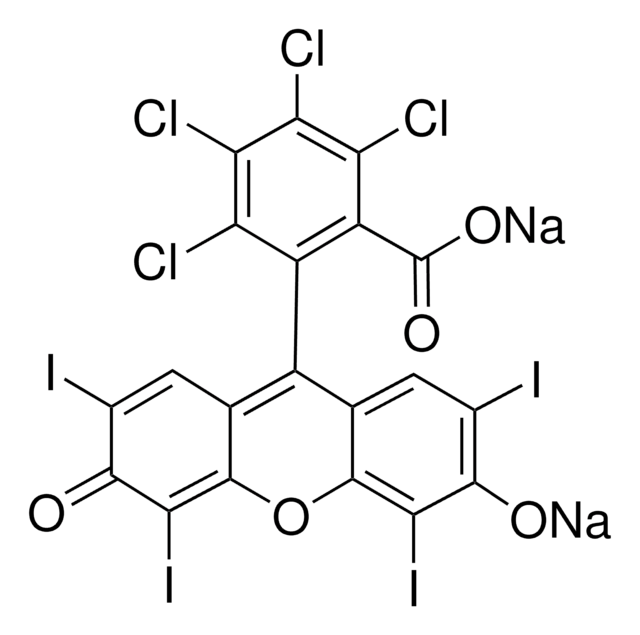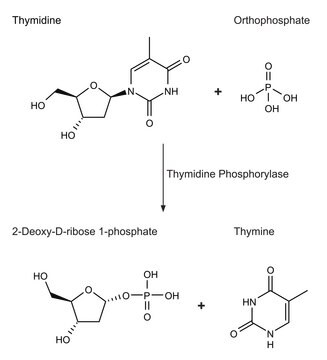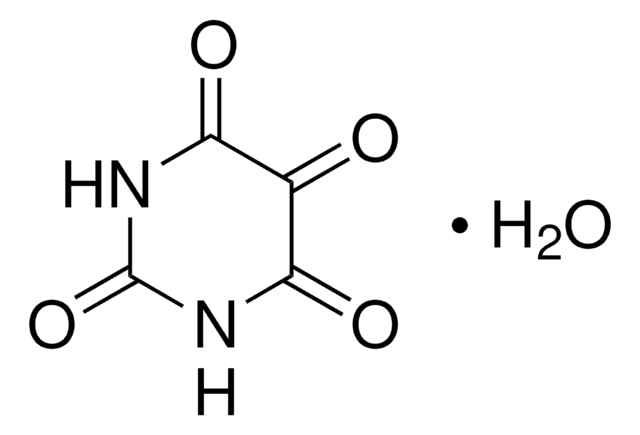About This Item
Recommended Products
form
powder, crystals or chunks
technique(s)
titration: suitable
mp
>300 °C (lit.)
λmax
350 nm
392 nm (2nd)
application(s)
diagnostic assay manufacturing
hematology
histology
storage temp.
room temp
SMILES string
Cc1cc2nc3NC(=O)NC(=O)c3nc2cc1C
InChI
1S/C12H10N4O2/c1-5-3-7-8(4-6(5)2)14-10-9(13-7)11(17)16-12(18)15-10/h3-4H,1-2H3,(H2,14,15,16,17,18)
InChI key
ZJTJUVIJVLLGSP-UHFFFAOYSA-N
Related Categories
General description
Application
Storage Class Code
11 - Combustible Solids
WGK
WGK 3
Flash Point(F)
Not applicable
Flash Point(C)
Not applicable
Personal Protective Equipment
Regulatory Listings
Regulatory Listings are mainly provided for chemical products. Only limited information can be provided here for non-chemical products. No entry means none of the components are listed. It is the user’s obligation to ensure the safe and legal use of the product.
JAN Code
103217-BULK:
103217-5G:
103217-VAR:
103217-1G:
Choose from one of the most recent versions:
Certificates of Analysis (COA)
Don't see the Right Version?
If you require a particular version, you can look up a specific certificate by the Lot or Batch number.
Already Own This Product?
Find documentation for the products that you have recently purchased in the Document Library.
Customers Also Viewed
Our team of scientists has experience in all areas of research including Life Science, Material Science, Chemical Synthesis, Chromatography, Analytical and many others.
Contact Technical Service![10-Ethyl-3,7,8-trimethyl-benzo[g]pteridine-2,4(3H,10H)-dione ≥95%](/deepweb/assets/sigmaaldrich/product/structures/610/004/664b92ed-0ce1-4e66-9f3e-d1cc53f1bc9a/640/664b92ed-0ce1-4e66-9f3e-d1cc53f1bc9a.png)

